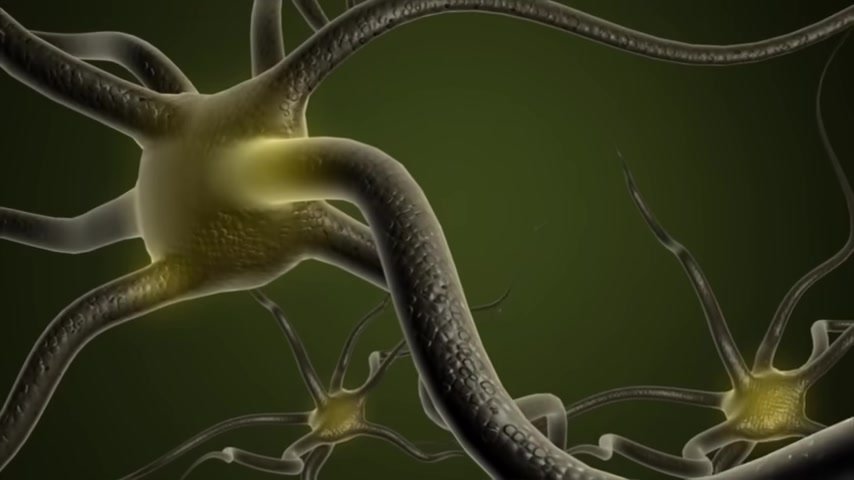Table of Contents
Identify the first signs of magnesium deficiency that you should never ignore. Learn how low magnesium levels can affect your health and discover ways to boost your intake through diet and supplements.
Important signs and symptoms of magnesium deficiency
Let’s talk about the earliest sign of a magnesium deficiency that you do not want to ignore .
There are 22 signs , but the earliest sign will shock you .
So stay tuned for that .
Now check this out .

Most of your magnesium is right inside the bone , 60% .
20% is in your muscles .
19% is in the soft tissues and the different organs .
And only 1% of all the magnesium is in your blood .
Magnesium is the most overlooked nutrient by doctors .
You cannot determine a magnesium deficiency by a blood test because half of the magnesium in your bones , 30% can be used as a reservoir for extra magnesium for your blood .
So you can be very magnesium deficient in your body yet have normal magnesium on your blood test .
There’s no single quick way to determine your magnesium status in an accurate way .
What causes magnesium deficiency?
But first , let’s talk about how someone would be deficient .
Let’s first go through the things that can deplete you of magnesium .
Of course , you have the sugar , the refined carbohydrates .
You have the alcohol , you have cirrhosis of the liver .

You also have even , in the farms , they put this fertilizer NPK stands for nitrogen , phosphorus , and potassium .
They don’t put magnesium back in the soil .
And then if we eat the plants that are low in magnesium , we become deficient in magnesium .
Malabsorption is another common reason .
That means you have inflammation in your gut , which prevents you from absorbing magnesium and other nutrients .
If you’re on a diuretic , if you are on a PPI , that’s something that helps with acid reflux .
If you had gastric bypass , if you’re low in vitamin d , you’re not gonna be able to absorb magnesium .
If you have inflammation , you won’t be able to absorb magnesium .
And there are also magnesium deficiency diseases , like diabetes , high blood pressure , arthritis , osteoporosis , and cardiovascular disease because there’s a huge association between all of those diseases and low magnesium .
But now let’s talk about the diet .
Foods high in magnesium
What foods are high in magnesium ?

Well , if you guessed leafy greens , you are correct .
These are vegetables .
Anytime you see green , think chlorophyll .
Chlorophyll is the blood of the plant .
So if you want more magnesium , think more green .
And I’m not talking about pistachio ice cream or lime green Jell O .
If you do , certain vegetables like spinach that have high oxalates , that can reduce the absorption .
So in other words , some of the foods that do have magnesium , like almonds , chocolate also have oxalates , which can block the absorption .

Now people will tell you that grains are high in magnesium , right ?
Well , grains also have phytates , which block magnesium .
Those are whole grains .
But you say , well , I’m eating refined grains .
Well , when they refine the grain or any food , they get rid of most of the magnesium .
So grains are not a good source of magnesium , whether they’re a whole grains or refined grains .
Also , when you boil food , you end up leaching out some of the magnesium .
Roughly the RDAs , for the recommended amount of magnesium is between like 300 400 maybe a little bit more .
There’s some data that shows that ancient man needed a lot more , almost double that .
And so most people don’t even meet the minimum amounts that we need to prevent a magnesium deficiency .
And this is why between 48 90% of the population is deficient in magnesium .
Also realize you can get magnesium from various meats , chicken , especially pork .
You can even get it from red meat and even cheeses , especially Parmesan cheese , and especially shellfish .
Signs of a magnesium deficiency
So now let me go through some of the body clues that , might indicate that you’re low in magnesium .
And then I’ll get to the first earliest sign because the earlier you know you have a deficiency , the better .

Anxiety , insomnia , depression , migraine headaches , restless leg syndrome , muscle cramps , fatigue , Tourette’s , oxidative cholesterol , high homocysteine levels , high blood pressure , calcification in the arteries , arrhythmias , risk for getting a stroke , metabolic syndrome , polycystic ovarian syndrome is PCOS , risk for kidney stones , higher levels of calcium in the blood , inflammation , nystigmas , where your eyes are going back and forth , and asthma .
So you’re probably kind of surprised how many different symptoms could occur if you’re deficient in magnesium .
But just realize if you have sufficient magnesium in your body , all 350 different enzymes can finally work and the body can actually do its job .
The earliest sign of a magnesium deficiency
But now let’s get to the number one earliest sign that you have a magnesium deficiency .
Neuromuscular hyperexcitability .
Now , what the heck does that mean ?

That’s a fancy word for tetany or twitching of your muscles , whether you get it underneath your left eye like a or even on your arm like this , it starts to twitch like that .
Any of those little twitching sensations are the early signs of a magnesium deficiency .
You have to realize that your nerves require magnesium to work .

And apparently when you’re deficient in magnesium , the nerves become more excited .
You get faster nerve impulses , not slower .
And if you really wanna know what’s happening , we don’t have enough magnesium to push the calcium out of the cell .
So now we have this buildup of calcium inside the cell .
It can’t come out because we don’t have enough magnesium .
So we don’t have the normal contraction relaxation .
So with magnesium and calcium , we have this whole dynamic between nerve impulses and muscle contraction and relaxation .
key Points:
Magnesium deficiency is the most overlooked deficiency because it cannot be detected by a blood test.
The top causes of magnesium deficiency include:
- Consumption of sugar and refined carbs
- Alcohol consumption
- Cirrhosis of the liver
- NPK fertilizer leads to crops that are low in magnesium
- Malabsorption from gut inflammation
- Diuretics
- PPIs
- Gastric bypass surgery
- Low vitamin D
- Inflammation
- Diabetes, high blood pressure, arthritis, osteoporosis, and cardiovascular disease are all associated with low magnesium.
- The best sources of magnesium are leafy greens, almonds, and dark chocolate, but some of these foods contain oxalates. Oxalates block the absorption of magnesium. Meat, cheese, and shellfish contain magnesium and do not contain oxalates.
Here are 22 surprising signs of magnesium deficiency:
- Anxiety
- Insomnia
- Depression
- Migraines
- Restless legs syndrome
- Muscle cramps
- Fatigue
- Tourette’s syndrome
- Oxidative cholesterol
- High homocysteine levels
- High blood pressure
- Calcification of the arteries
- Arrhythmias
- Stroke
- Metabolic syndrome
- Polycystic ovarian syndrome
- Kidney stones
- Higher levels of calcium in the blood
- Inflammation
- Nystagmus
- Asthma
- Neuromuscular excitability, or tetany, is the number 1 earliest sign of a magnesium deficiency. Tetany is a twitching of the muscles, often affecting the left eye.
- Magnesium is required for proper nerve function. When you’re deficient, the nerves become more excited, leading to faster nerve impulses.
DATA:
Get my FREE PDF Guide on Magnesium 👉Guide on Magnesium
FAQ:
What is the first sign of magnesium deficiency?
The initial signs of magnesium deficiency can be subtle and often overlooked. Early symptoms may include loss of appetite, nausea, vomiting, fatigue, and weakness. As the deficiency progresses, more pronounced symptoms such as muscle cramps, numbness, tingling, and heart rhythm changes can develop.
What happens if low magnesium goes untreated?
If magnesium deficiency goes untreated, it can lead to more severe health issues, including osteoporosis, high blood pressure, heart disease, and diabetes. Chronic low magnesium levels have also been linked to mood disorders such as anxiety and depression.
Does magnesium take effect right away?
The effects of magnesium supplementation can vary depending on the individual’s level of deficiency and the form of magnesium taken. Some individuals might notice an improvement in symptoms such as muscle cramps or anxiety within a few hours to days, while others might require a longer period of consistent supplementation to observe significant benefits.
How long does it take for magnesium deficiency symptoms to go away?
The duration required for magnesium deficiency symptoms to improve can range from a few days to several months, depending on the severity of the deficiency and the effectiveness of magnesium supplementation. Consistent daily intake is crucial for restoring magnesium levels and alleviating symptoms.
Magnesium Supplements: Types and Benefits
Magnesium Glycinate
Magnesium glycinate is a highly bioavailable form of magnesium known for its beneficial effects on sleep, anxiety, and overall muscle relaxation. It is less likely to cause gastrointestinal issues compared to other forms of magnesium.
Magnesium Supplement
Magnesium supplements are available in several forms, including magnesium oxide, citrate, chloride, and glycinate. Choosing the right form depends on your health goals, with magnesium glycinate being particularly recommended for sleep and anxiety.
Magnesium Foods
Rich dietary sources of magnesium include green leafy vegetables (such as spinach), nuts, seeds, legumes, whole grains, and fortified foods. Including a variety of these foods in your diet can help prevent magnesium deficiency.
When Not to Take Magnesium for Sleep and Anxiety
Magnesium supplementation for sleep and anxiety should be avoided or used with caution if you have kidney problems or if magnesium could interact with medications you’re taking. It’s essential to consult with a healthcare provider before starting any new supplement regimen.
Magnesium Glycinate Sleep
Magnesium glycinate is often recommended for improving sleep quality due to its calming effect on the brain and muscles. Taking magnesium glycinate a few hours before bedtime can help facilitate the relaxation necessary for restful sleep.




